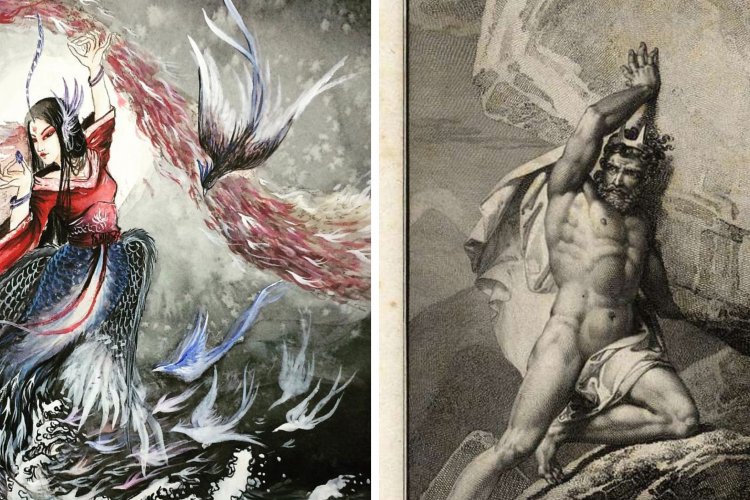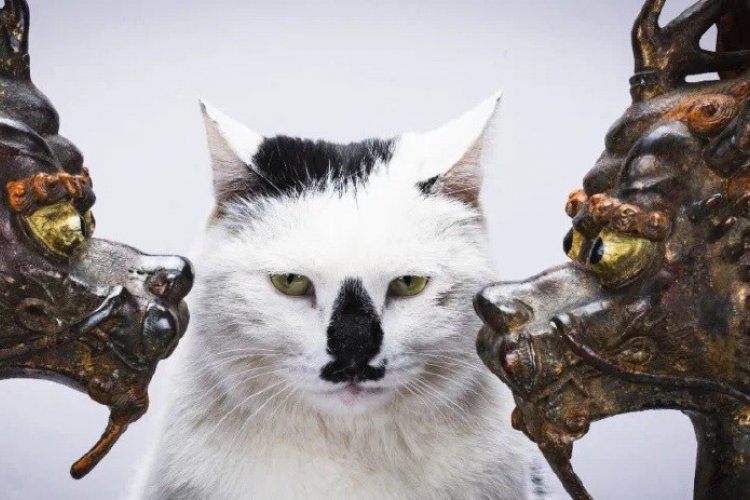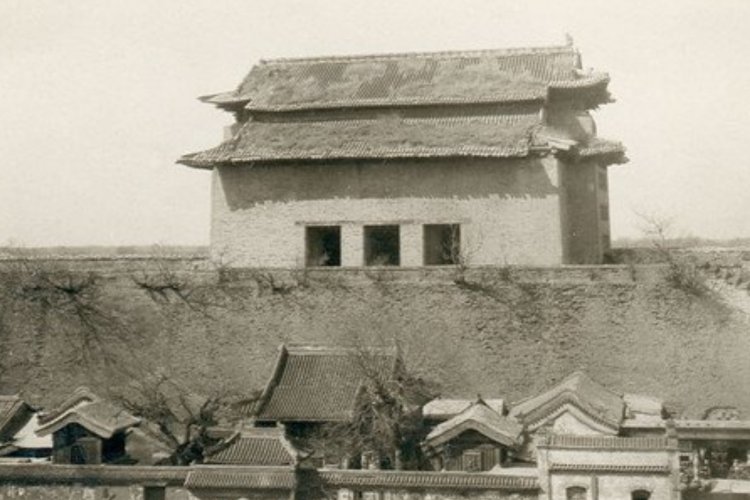The Ghost of Stone Tiger Hutong: A Beijing Halloween Tale
Is it possible that even in the neon canyons of Xidan, spirits of Beijing's imperial past still lurk?
On a crisp autumn evening in the early years of the Republican period, a rickshaw puller pulled up outside the Songpo Library on Stone Tiger Hutong in the Western City.
His passenger shuffled out of the carriage, paid his driver, and then vanished. The frightened driver claimed the only thing he saw was a single peacock feather – just like the ones which adorned the hats of Qing officials – floating through the air. Even more mysterious, the coin he took from his passenger was no longer a newly-minted “Yuan Shikai” coin, but instead, an old copper coin bearing the name of the Shunzhi Emperor, who hadn’t ruled Beijing since the 17th century.
Other stories tell of a ghostly presence who haunts the hutong to the present day, but not everyone is sure just whose spirit is to blame.
The most popular suspect is Chen Yuanyuan, the unfortunate concubine of the 17th century General Wu Sangui.
Most people in China know the story of General Wu. He was a Ming Imperial Officer charged with guarding the pass where the Great Wall meets the ocean. In 1644, Beijing was being threatened by a combined army of rebels and bandits led by Li Zicheng and Zhang Xianzhong. When they stormed the gates of the city, the last emperor of the Ming Dynasty hanged himself from a tree at the base of Jingshan, the artificial hill just behind the Forbidden City. The rebel armies seized the palace and began pillaging and looting the city.

General Wu then faced a dilemma: Stay at his post and guard the wall against the armies of the Imperial Regent Dorgon and the Manchus to the north, or head south and rescue the capital from the forces of Li Zicheng.
General Wu chose to fight Li Zicheng, turning his coat and allying with the Manchus in the fight to save Beijing. The combined armies of Wu Sangui and Dorgon routed the bandits but also afforded the Manchus of the Qing Empire the opportunity to bring their armies and Emperor south of the Wall. Their Qing Empire would rule China and Inner Asia from 1644 until the abdication of Puyi in 1912.
Apocryphal histories – most recorded over a century later – tell of the love that Wu Sangui had for the courtesan Chen Yuanyuan. The death of his Emperor wasn’t enough to move Wu Sangui, but when he heard that the Bandit King Li Zicheng had taken Chen Yuanyuan for his own, the jealous general decided to march his troops to Beijing ... bringing a full can of Manchu whup-ass with him in the form of Dorgon’s army.
Dorgon’s price? Wu’s surrender and the keys to the kingdom.
After the Qing Empire moved its ruler and capital to Beijing, General Wu became a useful tool in the wars to consolidate Qing rule throughout China. Every time a member of the Ming imperial family declared themselves a new emperor in some far-flung part of the country, the Manchus sent General Wu out to hunt down and kill the claimant to the throne. For his effectiveness at this bloody game of “Whack a Ming,” the Qing court rewarded Wu Sangui with his own fiefdom in Yunnan.
Wu Sangui set up his court in Kunming, bringing with him the beautiful Chen Yuanyuan. But things soon soured between the turncoat general and the beauty who brought down a dynasty. Chen Yuanyuan fell out of favor with Wu whose other wives, especially Lady Zheng, were jealous of Chen Yuanyuan. They spread rumors about Yuanyuan, poisoning the ear of Wu Sangui. In despair, Yuanyuan fled and became a nun at a temple near Kunming.
A few years later, Wu Sangui turned his coat one more time. But his attempt to carve his own kingdom out of Southern China cost him dearly, as the armies of the Kangxi Emperor crushed Wu’s rebellion. Wu’s family committed suicide, and even the estranged courtesan-turned-nun Chen Yuanyuan followed Wu into death.
But why would she haunt Stone Tiger Hutong? Is her pain so great that her apparition hovers above a place in Beijing where she lived for only a brief time and possibly not at all? Her death – and that of her lover Wu – happened thousands of miles away, so why return to the capital?
Perhaps, as at least one writer has argued, the ghost of Stone Tiger Hutong and the Songpo Library is not Chen Yuanyuan but her lover, the turncoat General Wu, stripped of his peacock feather for disloyalty so that it floats in space above the capital he betrayed.
Whoever it is, this ghost might not be alone on the lane. The home of Cao Xueqin, the author of Dream of the Red Chamber, once stood at #33 Stone Tiger Hutong. In earlier times, local residents reported hearing the sounds of music and a woman chanting. Could this also be Chen Yuanyuan reliving her life on stage or chanting scripture from the Great Beyond, or is this another spirit similarly cursed to haunt the neighborhood?
Jeremiah Jenne is a writer, educator, and historian based in Beijing since 2002. Jeremiah maintains the Chinese history website Jottings from the Granite Studio and leads history and culture walks around Beijing for The Hutong.
READ: Raising Ghosts: Five of Beijing’s Most Haunted Attractions
Photo: Jeremiah Jenne







